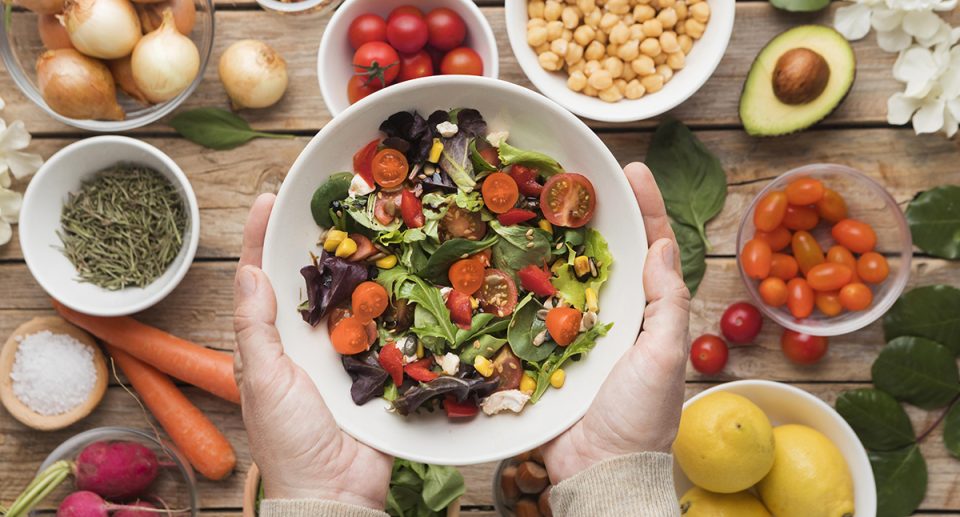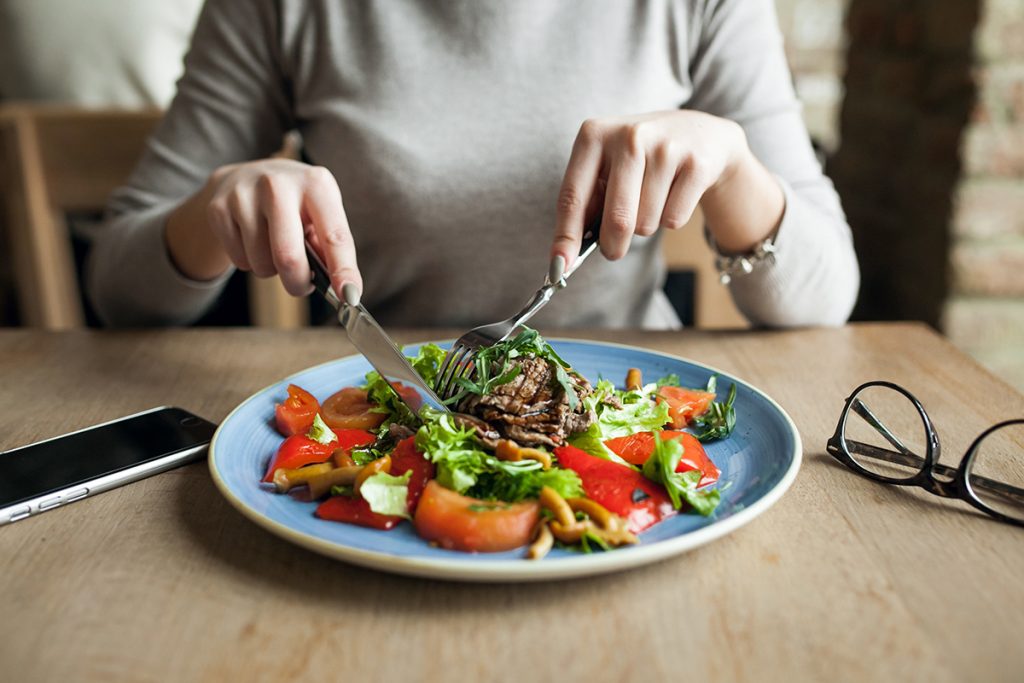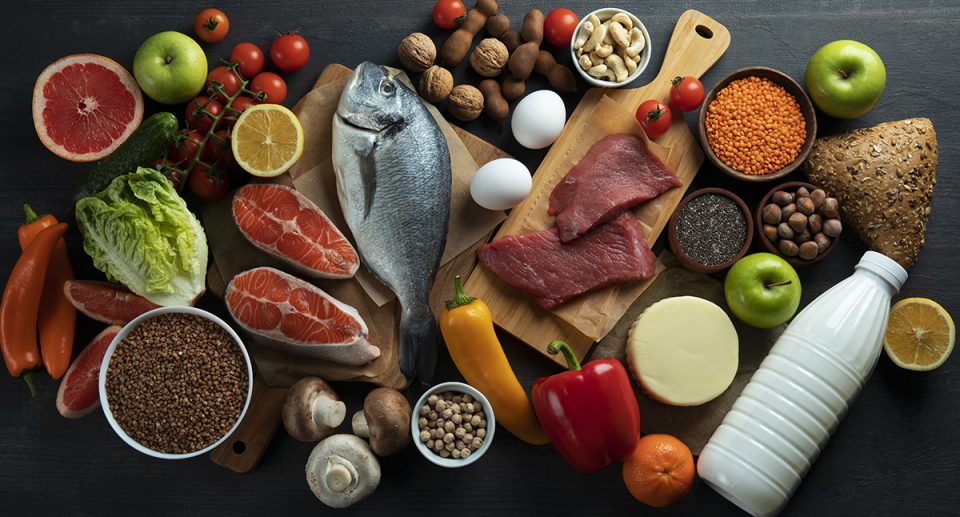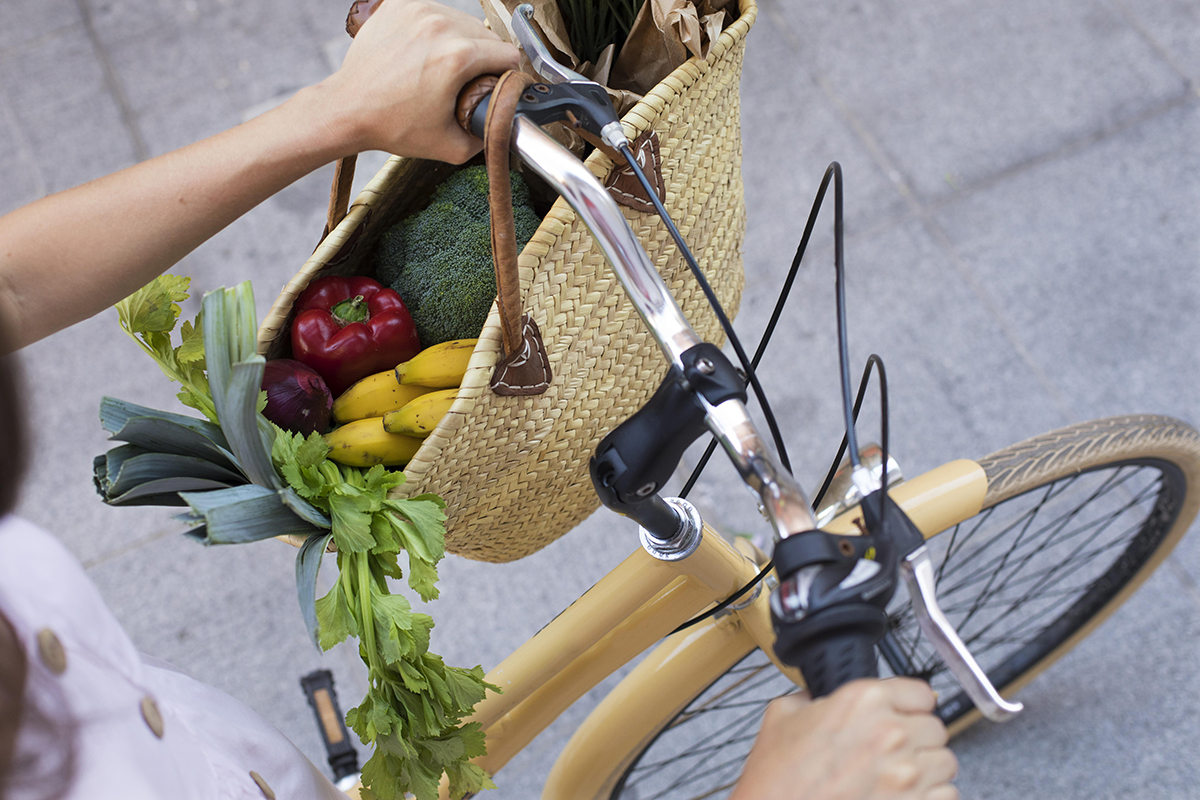11 Tips on how to eat healthier

You want to eat healthier (again). This is easier said than done! Because where do you start? And what’s the best way to start? With the tips from this article we’ll make it a lot easier for you to eat healthier!
What is healthy food?
Food is the fuel of the body. To function properly, your body needs energy and nutrients. This is mainly obtained from food. Healthy food products contain many nutrients, are natural, preferably unprocessed and do not contain added sugars and saturated fats.
Everybody knows that it is important to eat a varied diet so that you get all the important nutrients. This way you automatically eat all the healthy proteins, fats, carbohydrates, vitamins, minerals and fiber that your body needs.
Some examples of healthy food are: Vegetables and fruit, whole-wheat products, unsalted nuts, products with unsaturated fat and unprocessed sugars, and protein-rich products.
Some examples of unhealthy food are: Candy and chips, sugary soft drinks, fries and snacks, red or processed meat, white bread

We have made a list of 11 tips for you so that you can quickly start to eat healthier!
01. Drink as little soda as possible
Minimize your consumption of soft drinks as much as possible. These beverages are a leading contributor to obesity in both adults and children due to their high sugar and calorie content. Additionally, they provide no feeling of satiety, making them essentially ‘empty calories’. To eat healthier, it’s time to cut them out!
02. Avoid junk food as much as possible
Strive to avoid junk food as much as you can. While fries, burgers, chips, and cookies may be delicious, they are not conducive to a healthy diet. Junk food is typically loaded with refined sugars and fats while lacking in vitamins, fiber, and protein. Instead, it’s packed with empty calories, concentrated sugars, sweeteners, harmful fats, and additives. These items offer little nutritional value and are packed with unhealthy substances. It’s best to steer clear to eat healthier!

03. Eat at least 250 grams of vegetables per day
Make it a goal to consume at least 250 grams of vegetables per day. This recommendation comes from the Nutrition Center, and by incorporating a variety of vegetables into your diet, you’ll naturally obtain all the necessary nutrients. However, it’s important to note that there is a difference in weight between raw and processed vegetables. Discover how much you need to prepare in order to reach the 250-gram goal each day.
04. Eat at least 2 pieces of fruit daily
The recommended daily intake of fruit is two portions, equivalent to around 200 grams. By incorporating a variety of fruits into your diet, you can naturally obtain all the essential nutrients your body needs. To eat healthier it is important to note that fruits contain fruit sugar, which contributes to calorie intake. Therefore, it is advised to limit fruit consumption to no more than two pieces per day.

05. Eat a handful of nuts every day
Including a handful of unsalted nuts in your daily diet is beneficial for your health. These nuts are rich in unsaturated fats, which aid in the absorption of vitamins and help reduce the risk of cardiovascular disease. Whether they are raw, roasted, or salted, the nutritional benefits remain the same. However, it is important to remember that nuts are calorie-dense, so moderate consumption is recommended.
06. Eat as little added sugar as possible
Minimizing the consumption of added sugars is crucial for maintaining a healthy lifestyle. Sugar is often added to enhance the taste and texture of products, as well as to extend their shelf life. However, these sugars provide empty calories that offer little nutritional value. Therefore, it is advisable to opt for products labeled as ‘No added sugars’.

07. Eat enough (vegetable) proteins
Sufficient intake of proteins, especially from vegetables, is vital for the body’s growth and muscle development. Since proteins can only be obtained through food, they play a crucial role in maintaining a balanced and nutritious diet.
To eat healthier it is recommended that individuals consume 1 to 1.8 grams of protein per kilogram of body weight daily. If one engages in regular exercise, the protein intake should be higher, whereas it can be lower for those who are less active. The good news is that protein can be found in a variety of natural sources.
08. Try to eat kernels and seeds every day
Instead of relying on packaged meals, to eat healthier it is advisable to use natural, plant-based ingredients. Fresh vegetables, fruits, and nuts are excellent choices. Processed and pre-packaged foods often contain additives like e-numbers, added sugars, artificial flavors, aromas, and colorings, which offer little nutritional value.

09. Eat as much real, unprocessed products as possible
Although snacking on sunflower seeds has become less common nowadays, it is a healthy option. Additionally, chia seeds and flaxseeds are increasingly popular as part of a nutritious yogurt breakfast. These seeds are rich in proteins and fats.
10. Make sure you get enough fiber, vitamins and minerals every day
By following the aforementioned suggestions and maintaining a healthy and diverse diet, you will provide your body with all the essential nutrients it needs on a daily basis. However, if you are on a specific diet, have dietary restrictions, or follow a completely plant-based lifestyle, it becomes crucial to pay closer attention.
Are you certain that you are meeting your body’s requirements for essential vitamins and minerals? To eat healthier, why not give green juice a try?

11. Drink enough water
Your body is composed mainly of water, which is essential for proper bodily function. It is crucial to ensure proper hydration. The recommendation is to consume an average of 1.5 to 2 liters of water daily. During physical activity or in hot weather, you lose more fluids and therefore need to drink more. It is also wise to consume a hypotonic beverage during exercise.
11 Tips on how to eat healthier conclusion
Expanding the range of foods you consume is a widely recognized method for guaranteeing you obtain all the necessary nutrients. By embracing diversity, you effortlessly include crucial proteins, fats, carbs, vitamins, minerals, and fiber, all of which are essential for sustaining the wellbeing and liveliness of your body.
This article equips you with the information necessary to make educated decisions on how to eat healthier and begin a personal quest towards a stronger, more energetic version of yourself!

Read more: 5 Tips for a varied and healthy diet.



















